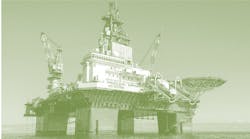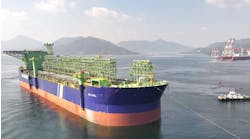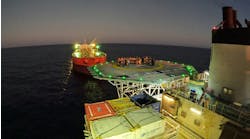New Zealand government looking to restart exploration offshore
Offshore staff
WELLINGTON, New Zealand — The Coalition Government in New Zealand is proposing to lift the ban on new petroleum exploration beyond onshore Taranaki, North Island, which the previous administration imposed in 2018.
This is one of numerous planned amendments to the Crown Minerals Act to address New Zealand’s energy security issues and restore investor confidence in the country’s petroleum sector.
Reportedly, the government wants to encourage E&P companies to resume exploration in the main offshore fields that supply most of the country’s gas.
Resources Minister Shane Jones said, “Natural gas is critical to keeping our lights on and our economy running, especially during peak electricity demand and when generation dips because of more intermittent sources like wind, solar and hydro.
“When the exploration ban was introduced…it not only halted the exploration needed to identify new sources, but it also shrank investment in further development of our known gas fields, which sustain our current levels of use. Without this investment, we are now in a situation where our annual natural gas production is expected to peak this year and undergo a sustained decline, meaning we have a security of supply issue barrelling towards us.”
The changes are designed to reestablish New Zealand as an attractive and secure destination for international investment, he added.
“Some of our current settings are a barrier to attracting investment in exploration and production because they are overly costly and onerous on industry. Some obligations lack necessary flexibility, and compliance obligations are uncertain and unclear," he continued. “As well as removing the ban, we are proposing changes to the way petroleum exploration applications are tendered and allocated, aligning the petroleum decommissioning regime with international best practice, and improving regulatory efficiency.”
The Crown Minerals Amendment Bill will be introduced to Parliament in the second half of 2024.
Currently permits are allocated via a competitive tender process. The bill proposes allowing for a choice between a tender and a non-tender ("priority in time") method.
There would also be changes to the petroleum decommissioning requirements to align with international best practice, and to better balance regulatory burden and risk. Post-decommissioning liability would remain on a permit-holder that decommissioned if something went wrong after plugging and abandoning a well or leaving infrastructure in situ.
Energy Resources Aotearoa welcomed the announcement; the association claims its member companies provide about 90% of natural gas and oil produced in New Zealand.
Chief executive John Carnegie said, "We welcome a return to sensible, pragmatic policy settings that fairly manage the upstream oil and gas sector to the benefit of all New Zealanders…
"The changes proposed will also help restore investor confidence, and will be welcomed by the Taranaki region, providing a boost to their local economy through increased investment and job creation. This confidence will also spur investment across the system in low-carbon technologies like carbon capture and green gases."
06.10.2024



